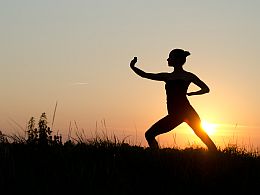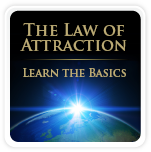-
 Love &
Love &
Relationships -
 Money &
Money &
Success -
 Mind &
Mind &
Spirit -
 Health &
Health &
Wellness -
 Inspirational
Inspirational
Videos -
 Spiritual
Spiritual
Coaching -
 Life
Life
Coaching
Qigong
 What is Qigong?
What is Qigong?
Qigong is a therapeutic practice indigenous to Chinese culture. Qigong is purely for healing and has specific exercises that are particularly effective for specific diseases. The name is derived from the Chinese concept of qi, or the life force that gives people their energy to remain alive.
Its origins are very complex and multifaceted, as traces of qigong manifest in practices dating back well over four thousand years. Qigong applies elements of Chinese medicine, physical exercise, and philosophy, and there exist multiple variations of it that are practiced to this day. Perhaps the most salient attribute of qigong is balance, manifesting in body and mind.
How does Qigong work?
There are varied practices associated with qigong; in this vein, it is an umbrella concept that characterizes a balanced state of existence. It is generally believed that the most prevalent manifestations of qigong involve physical, medical, and meditative exercises.
Physical Qigong
Physical qigong often involves engaging in motion that is highly prescribed so as to follow guidelines associated with physical balance and grace. Physical qigong is said to involve a complete harmony between all aspects of one’s body, so that the motion is an expression of absolute unity. Physical qigong includes physical postures, breathing techniques, and mental focus. The word Qigong is translated from Chinese and literally means “energy work”. Some qigong exercises increase the Qi, while others circulate, purify or restore the Qi.
Medical Qigong
If we experience any physical problems, it’s an indication that the vital energy Qi, isn’t moving freely in our bodies as it should. The highly refined physical qigong exercises can help us with this, but sometimes a practitioner is needed to assist in the cleansing, redirecting and restoring of the vital energy.
Medical qigong is when you apply qigong for medical purposes. It is a modality of Traditional Chinese Medicine (TCM). In China medical qigong is used to treat all kinds of medical conditions, including chronic pain, cardiovascular disorders, constipation, irritable bowel, sport injuries, sprains, strains and depression. Sometimes medical qigong is used in conjunction with Acupuncture, herbs and Western medicine.
A practitioner uses different mental images and hand movements to perform the healing procedure that is called medical qigong. There is little to no physical touching required, and no invasive techniques are used. The experience of the treatment is often a sense of deep relaxation. Medicinal qigong can also involve a qigong master prescribing food, drink, or medication for an individual to consume. In each instance, the individual is said to acquire qi, or the life-substance that provides people with the energy and balance to live with physical and spiritual balance. Since medical qigong is not licensed or regulated in the USA, it’s important to choose your practitioner carefully.
Meditative Qigong
Meditative qigong encompasses aspects associated with yoga, as well as more Western forms of meditation. In some cases, a person will stretch and contort their body in ways that relax the muscles and promote physical dexterity. The posture should be relaxing and aligning. Other manifestations of meditative qigong involve the individual sitting on the ground with their eyes closed, engaging in consciously breathing and focus. Meditative qigong also includes visualizing and feeling the universal qi flowing smoothly along the qi pathways. In meditative qigong the person is present and aware, and at the same time relaxed and calm.
What is Qigong used for?
Qigong is used for maintaining good health and quality of life. It is also used for improving balance, coordination, posture, flexibility and endurance.
Qigong is used for the same purposes as meditation or even certain psychotherapeutic procedures. Similar to meditation, it is not likely to be successful in overcoming trauma but is instead geared toward helping people approach life on a day-to-day level. Qigong can assist people in placing their everyday events in perspective, teaching them not to react too strongly when an undesired outcome results. The balanced approach that it preaches holds benefit for individuals engaged in stressful occupations, and the physical component means that it is especially beneficial to those who require loose muscles, such as athletes or manual laborers.
What are the benefits of Qigong?
The benefits of qigong vary to some degree based on whether somebody adheres to the indigenous belief systems in which it developed. For example, in China, qigong may hold religious benefits that are not applicable to somebody living in the United States. Universally, however, qigong is useful in that it loosens one’s muscles and helps cleanse their mind. No matter the variation that is adopted, qigong can help one adopt a more balanced perspective toward their situation, shaping their internal reality so as to more productively encounter adversity. Additionally, medicinal qigong may provide nutritional benefits that could result in greater energy and resistance to disease.
Qigong can reduce stress, relax the muscles, improve the blood flow, increase the immune response, and create vitality in the body. It is also said that qigong calms the mind, and develops the ability to focus. Qigong can also help to release negative mindsets and open the heart. It balances the emotions to appropriate emotional responsiveness. Many people have found that Qigong can help you let go of your ego and observe yourself with detachment. It can also enhance your spiritual awareness as it produces a feeling of integrity and wholeness.


